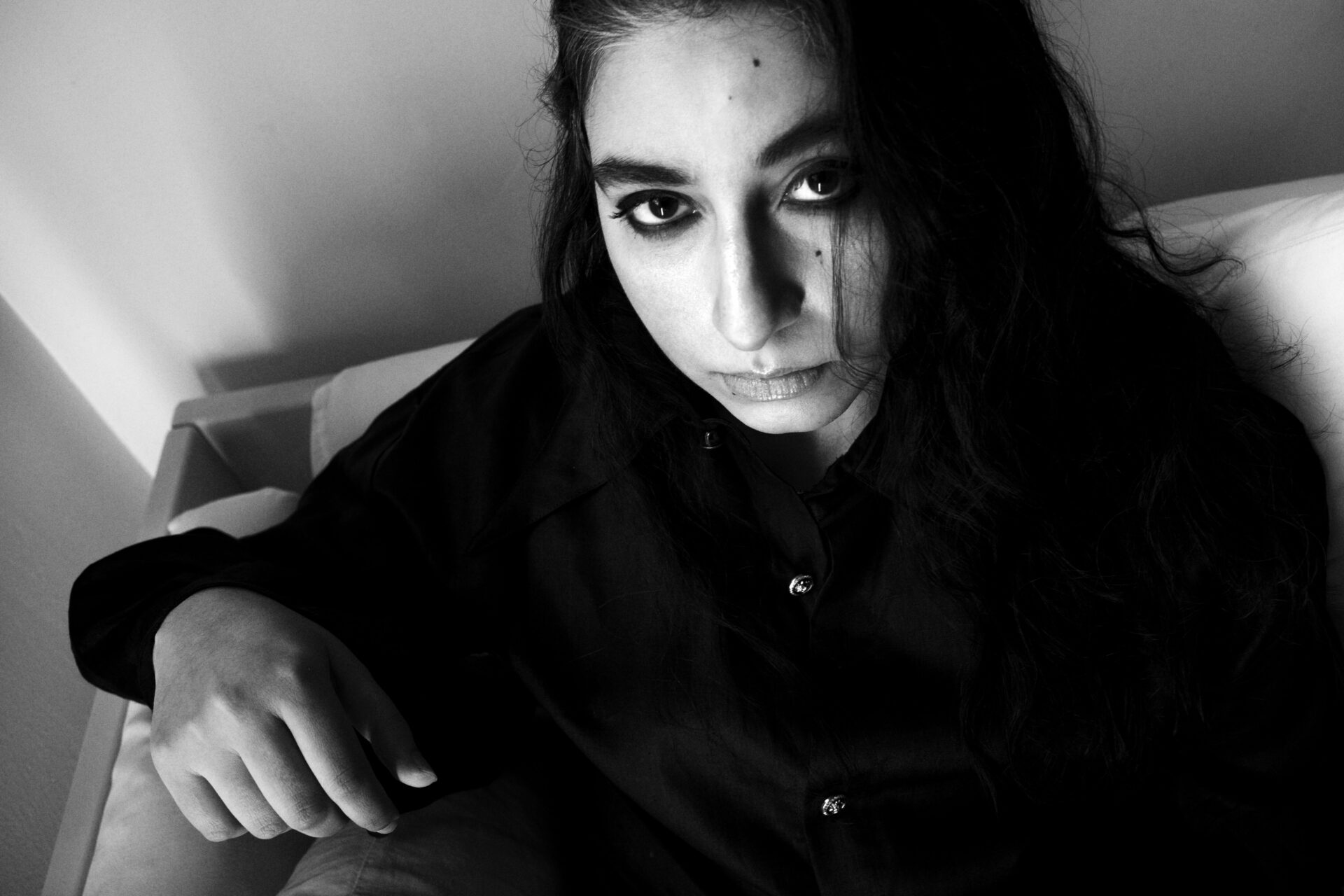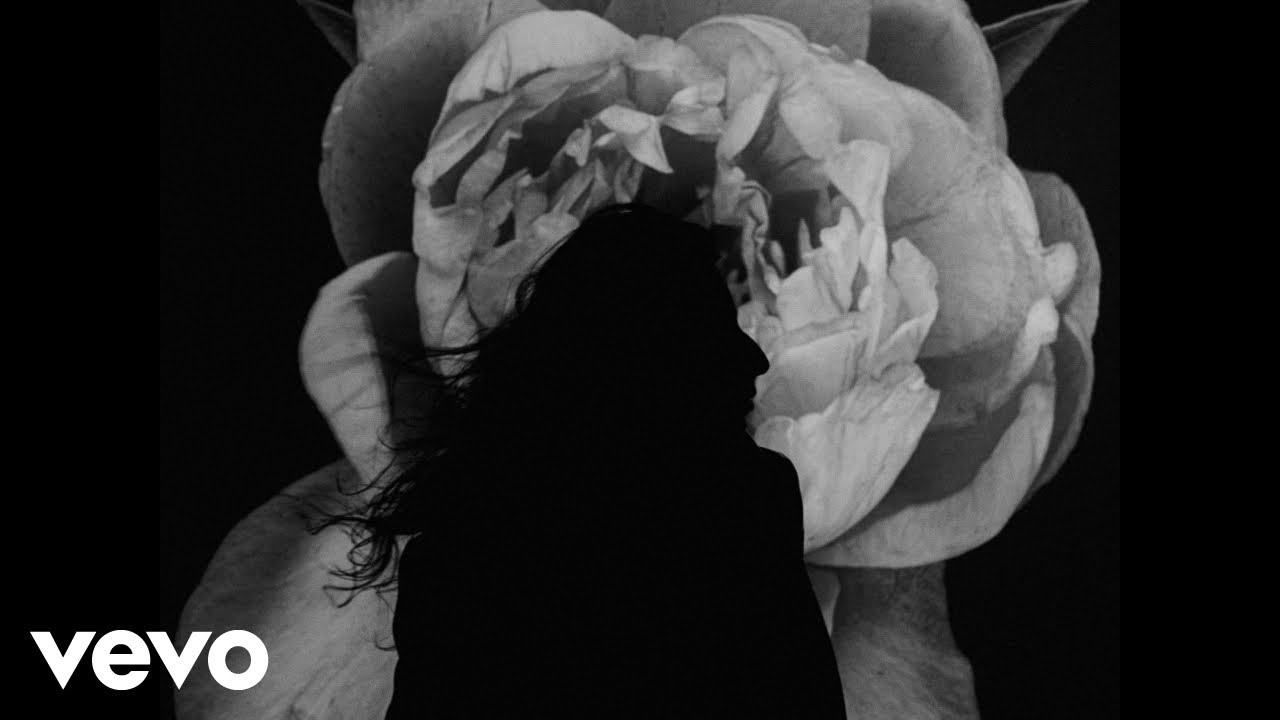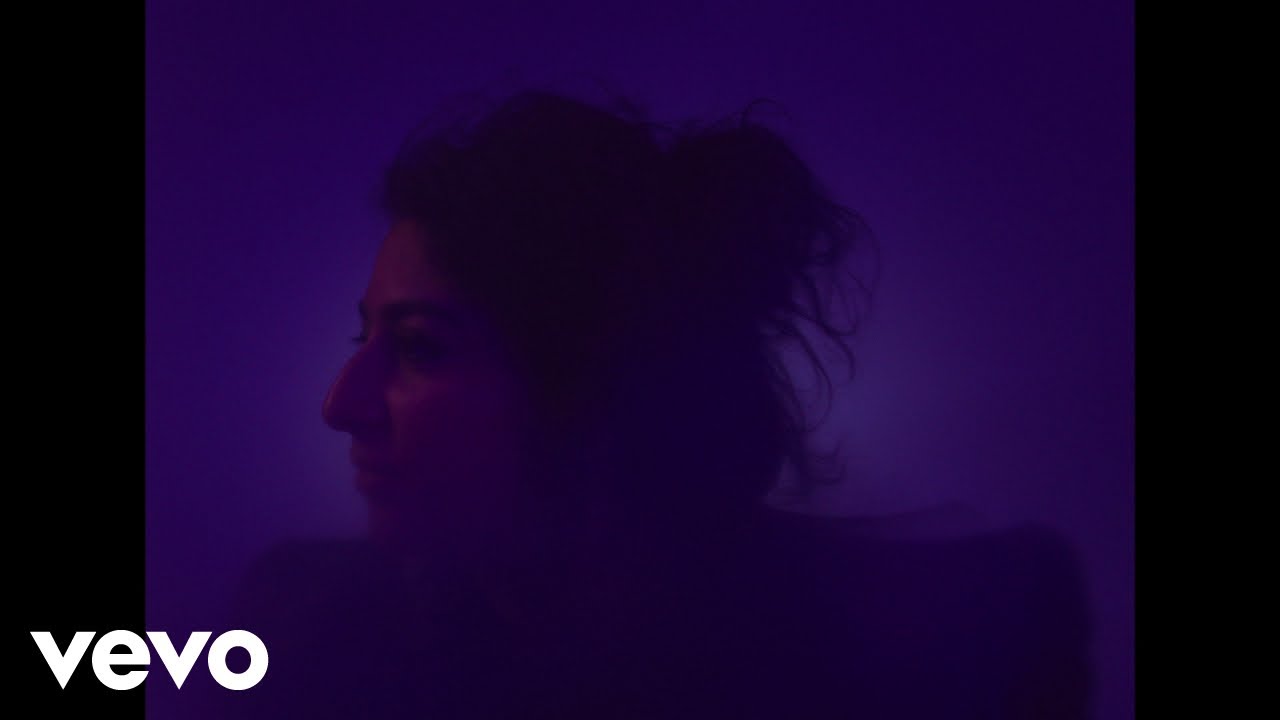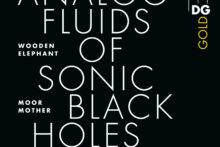There’s a track on Arooj Aftab’s upcoming album that perhaps needs clarifying. ‘Whiskey’ might be named after the popular fermented grain liquor but its use is not necessarily what the song is advocating for. At least, it’s not where the story takes us. “People think that it’s about a love of whiskey but it’s really about going to a bar with someone who’s drinking more than you,” Aftab explains, sipping an espresso. “But you’re also not completely sober yourself, so it kind of sucks a bit,” she adds with a knowing smile.
“I’m drunk, and you’re insane,” she sings languidly as harp strings are plucked – “tell me how we’ll get home”. We don’t often write love songs in this way, the Pakistan-raised, New York-based singer and composer tells me – and that’s what she’s drawn to. The minutiae of things, the seams of a story. One could argue that the moonlight reveals to us what we miss in the rush of day and Aftab would probably agree with this frame of reference. Which is why she began writing her latest collection of songs while touring, in the borderland between sleeping and waking. In hotel rooms, for instance – and on the road. A collection that she has called Night Reign because these songs are about the character of nightfall in all its capricious forms.
“The night became a great friend,” the 39-year-old says in the warm light of a weekday morning, tucked in a corner of the north London hotel she’s currently staying in, wrapped in a navy-blue coat that remains decidedly on for the duration of our conversation. “The shows are at night, the jet lag is at night, the flights are at night,” Aftab elucidates further, illustrating just how pivotal these nocturnal hours have been for her over the last three years since she released her third solo album, Vulture Prince: a hybrid record that took everyone by surprise – not least Aftab herself. “It blew up and surpassed my day job,” she tells me. “I expected people to say, ‘Oh there’s that world music artist again’, and ‘there’s that language we don’t understand’. But it did the thing I wanted it to do and I was shocked!”
The thing she wanted it to do was bridge the gap between the traditional (influences of Pakistani classical, jazz and minimalism sung predominantly in Urdu verse) and the contemporary. When the record was released, Aftab told the Los Angeles Times that she hoped Vulture Prince would “transcend boundaries.” In doing so, her innovation also garnered her new fans and accolades. She became the first-ever Pakistani woman to win a Grammy Award for her song ‘Mohabbat’ (meaning ‘love’) in 2022, a yearning ballad inspired by a well-known ghazal (an ancient form of Arabic poetry) penned by Hafeez Hoshiarpuri. Barack Obama even selected the dew-dappled song as one of his summer playlist favourites in 2021.
All this was, it’s fair to say, “a huge surprise” for a musician who taught herself the guitar as a teenager in Lahore, Pakistan, listening to Billie Holiday and “the Queen of Ghazals” Begum Akhtar. No longer bound to a corporate nine-to-five, she could finally be the musician she wanted to be: a critically-acclaimed artist in New York – the city she’s called home for well over a decade. “When your project becomes successful, people start gravitating towards you in a particular way, and I was experiencing this in the evenings at parties,” she says. Which is how the darkness of night came to be her muse on this new record. Not simply a period of time, she emphasises, but a protagonist in its own right, personified through vignettes and melody. “Once I honed in on that, it just took off.”
When talking about boundaries with Aftab, it’s impossible not to acknowledge the geographical ones, too. “I was born in Saudi Arabia and it has felt strange for the longest time,” she says as we discuss movement and heritage. Aftab was born to Pakistani parents in what she describes as “a closed place, a desert, the pinnacle of reserved religion” and the strangeness she feels is partly to do with this expatriated disconnection. Growing up there, its barrenness didn’t match up with the fertility of home which was guided by parents she describes as “seventies liberals”. Bearing this in mind, her move to Lahore in Pakistan, when she was eleven years old, changed everything. It’s a tangible place, she tells me. “I’m really glad that my parents decided to leave and go to their home country. There was a lot of celebration of language and culture. It’s woven into the fabric there – art, music, poetry, dance – and I fell in love with all these things.”
Mimicking Jack White of The White Stripes and The Edge of U2 on her guitar, she quickly figured out how to mic herself and perform. A viral hit, singing Leonard Cohen’s ‘Hallelujah’, soon followed. After that, she won a scholarship to attend Boston’s Berklee College of Music and graduated with a degree in production and engineering. She’s remained in America ever since. “It’s been brought to my attention that music and musicians can be very New York,” she says. Which is how she describes her latest offering Night Reign: a reflection of 15 years living in a city “where nobody sleeps and everyone is living on top of each other.” And yet, “there is a lot of sharing that happens, too.” It’s an ethos, she poetically concludes, that isn’t far removed from the spirit of jazz itself. A genre where “there aren’t any rules.” If New York is a melting pot then Aftab’s music is, too; a hypnagogic form that weaves jazz, electronica and minimalism with the looping rhythms of the devotional Sufi culture she loves.
Although often described as a genre-defying artist, many like to genre-define her on a micro level anyway. From “jazz fusion” and “Hindustani classical” to “neo-Sufism” – a term Aftab herself came up with in her younger years when asked what her first record was all about. Does she regret coining it, I wonder? She laughs. “I was just a baby, you know? I should’ve been like, it’s new! I’m making something that I want to hear that I’m not finding in the music scene.” When it came to an east-to-west crossover in 2014 nothing she was listening to quite hit the mark. “Yeah, someone can play tablas and put a saxophone over it but that’s not contemporary. You’re just putting blocks together. Where’s the next step?” One gets the sense that this is a question Aftab has asked herself from the very beginning. In 2014, the then-29-year-old released her soulful debut, Bird Under Water, blending trumpets, accordion, sitar and bansuri (an ancient side-blown bamboo flute originating from India and Nepal) with qawwali, a form of Sufi Islamic devotional singing, to mesmerising effect. Three years later, she fearlessly mutated with her follow-up Siren Islands, an aqueous underworld of synthesised sound, ghostly and chimerical, that took us to the three rocky islands where the sirens of Greek mythology lured sailors to their deaths.
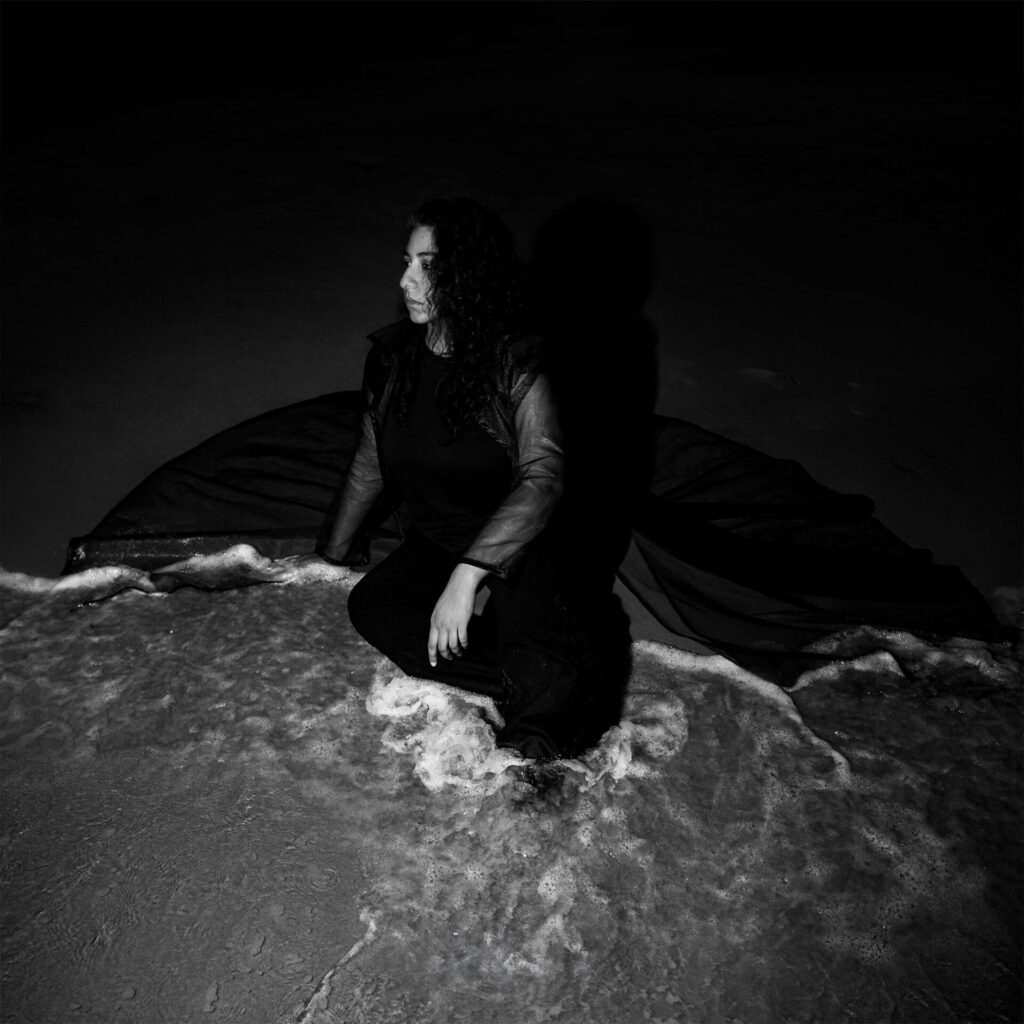
And then came Vulture Prince in 2021, a record that metamorphosed of its own accord, reshaped and reformed by the eddy and flow of her grief. The record is dedicated to the memory of her younger brother, Maher, who died while she was making it. Lost voices, and lost moments. In the accompanying promotional material for Night Reign there is talk of “stepping away from, though never forgetting, the grief and loss that animated” the last record. I wonder how her grief has evolved as she embraces this new iteration of blossoming songs – something she calls an “unfurling”. There is a dynamism to Night Reign that feels like she’s treading new ground. And yet I get the sense that there is a continuation of remembrance, too. “It’s come together as grief does, right?” she replies. “I was really sad when I was writing Vulture Prince. In the last couple of years, that sadness has been embraced and has evolved. And I feel joy, I feel the sultriness, I feel the celebration of life. I don’t want to be associated with sad lament-y stuff just because the last record was that. Night Reign is almost fun. It’s an honest representation of where I’m at.”
I’m reminded of something Nick Cave said recently, in relation to the death of two of his sons, that “joy is something that leaps unexpectedly and shockingly out of an understanding of loss and suffering.” Grief evolves, Aftab agrees: “You’ll see the light again.” And what better way to illustrate this dawning than with the album’s debut single ‘Raat Ki Rani’? It’s a heart-racing and propulsive ballad inspired by the rhythms of Brazilian maracatu. But it’s also sung with playful irreverence using an Auto-Tune plugin that liquifies her voice. Is this her Cher moment? “I like that,” she laughs. “Cher is a good one – because I’ve been saying Imogen Heap.” Why Auto-Tune, I ask? It goes back to this album having a sense of fun. “We’re no longer depressed and lamenting,” she reaffirms. “This album is not a place to park your sadness. Move on with me.” Picking up with her longtime collaborators Petros Klampanis (on bass) and Maeve Gilchrist (harpist and arranger), Aftab has reached out to new comrades on this record. Cautious Clay, for instance, a multi-instrumentalist who brings his birdlike flute-playing to a sumptuous reprise of Vulture Prince’s ‘Last Night’ – no longer the reggae-infused jam it once was. And Chocolate Genius, aka Marc Anthony Thompson, who joins her on closing track ‘Zameen’, originally sung by her much admired predecessor Begum Akhtar, a tender epilogue full of “fiery longing”.
With the American poet, musician, and activist Moor Mother, however, comes a different kind of sentiment – and one that also helps define Night Reign. “We’ve been waiting for this moment, and the right song,” Aftab tells me when I ask her about their pairing on ‘Bolo Na’: an elemental call with burning lyrics that seem to nudge us into darker waters. “I want to believe in a love, in a future, I want to believe,” Moor Mother repeats over a skulking bassline. It’s a line that feels pertinent to where we find ourselves in 2024. On the morning that I meet Aftab, Donald Trump’s trial is reconvening in Manhattan, and abortion rights advocates and opponents are clashing outside the US Supreme Court. A lot has happened globally since Aftab’s last record came out in the midst of the pandemic – and the anger isn’t lost in this follow-up. ‘Bolo Na’ began as a love song, she tells me, written when she was a teenager about a non-committal entanglement. “Like, do you love me or not?” Aftab summarises. Deemed “too corny” by the young singer, it was soon shelved – until the bassline returned to her recently and she realised it signalled to something far greater. “This is a resistance song now,” she says. “It’s no longer a love story.” When she sent the track to Moor Mother she said, “We can be mad, we can be upset about stuff.” And Moor Mother delivered. “This insanely hard shit,” she laughs. “Moor Mother is crazy, she’s so good.” What began as a “lame” ballad full of questions transformed into a powerful awakening. “I don’t need to know if you love me or not,” she circles back to her teen-lyric. “I know you’re lying.” In this sense, the toxic relationship is no longer with a former love interest but with the current structures that claim to hold us. “The world is lying to us,” she says with an impassioned voice, “they don’t love us.” When she put down her vocals there was, she says, a righteous feeling – almost of happiness. “Because this mopey love song turned into my feeling of right now. This is how we feel right now. We feel like establishments that were put in place to protect us aren’t doing that. And we’re stuck.”
It’s a sentiment that is reflected in her cover of the old jazz standard ‘Autumn Leaves’ based on the French song ‘Les Feuilles Mortes’ (‘The Dead Leaves’). When it was written in 1945, its composer, the Hungarian Joseph Kosma, was under house arrest in occupied France. “The falling leaves drift by my window,” Aftab sings on a cavernous rendition that teeters on the edge of something. It is, she agrees, another kind of resistance song: “Jazz is a deeply resistant music and it’s been a part of my world forever.” As has her love of singing in Urdu, another lifeline that runs through her records. A question she always asks herself is how she can tell a story through music while also minimising the lyrics so that we can “just feel.” I wonder if there is a kind of freedom for non-Urdu-speaking listeners like myself with only her music as my guide. On a midsummer’s evening in 2022, I watched thousands of people coalesce in enthralled rapture as Aftab sang against the majestic silhouette of the Welsh Brecon Beacons. It’s a stillness that could have rivalled a great cathedral. And yet, for many, the lyrics were a mystery to them – absorbed, as if by osmosis.
“People who have moved around a bit have a strange relationship with language and we’re almost pushing back on it,” Aftab muses as we discuss her performance at Green Man Festival – and the liminal space between perception and knowledge. In blurring those lines, I’m curious to know what traditionalists make of her music back in Pakistan. “I think everyone is okay with it,” she replies after a thoughtful pause, “I don’t think that they’re precious about the tradition evolving.” If anything, she says, everyone she has spoken with have been “in awe” because, through Vulture Prince, “Urdu became cool and known, I think I created new horizons for them.” She likens this to the lesser-known bond between the legendary Pakistani qawwali singer Nusrat Fateh Ali Khan and Jeff Buckley in the nineties – (Buckley owned hundreds of cassettes of qawwali recordings and even covered Khan’s ‘Yeh Jo Halka Halka Suroor Hai’ during his performance at the Sin-é coffeehouse in New York City’s East Village in 1993) – igniting a creative relationship that led Khan to further collaborate with Peter Gabriel before his death in 1997 at the age of 48. “He was starting to create a crossover,” she tells me of Khan’s final years. “And I feel like I’m doing the same thing. It’s having a similar effect.”
Much is made of the Sufi connection with her music, she says. But her minimalism is as important as anything else. Although she is inspired by ghazals, they are, she’s keen to stress, just another element of her own hybridity. Like a magpie, she flits between these things, giving us the space to, as she rightly puts it, just feel. Chasing “the sound” in her head has always come from this place of authenticity, she muses. “I’m trying to make the music tell you what’s happening,” she says with a smile – “and that’s a beautiful place to be.”
Arooj Aftab’s Night Reign will be released by Decca on 31 May.
Aftab has recently been announced as one of the curators of this year’s Le Guess Who? Festival in Utrecht, taking place this November. For details and the full lineup, click here.

